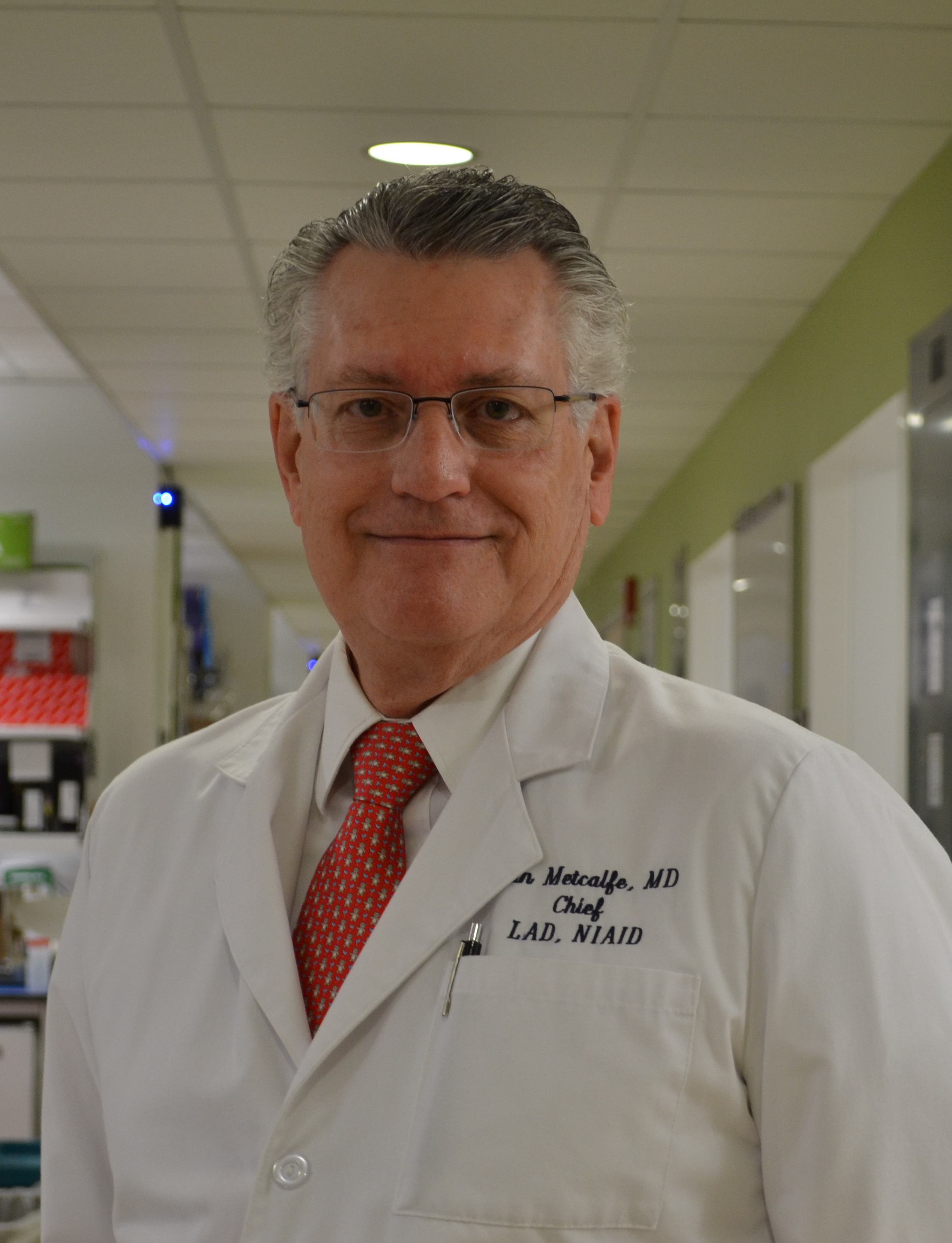Researcher of the Year 2018 - Dean Metcalfe

Dr. Dean Metcalfe received a Bachelor of Science from Northern Arizona University in 1966 and a Master of Science from the University of Michigan (U of M) in 1968, which focused on murine leukemia viruses. He received his Medical Degree from the University of Tennessee in 1972 and completed a residency in Internal Medicine at the U of M in 1974. From 1974 to 1977, Dr. Metcalfe was a fellow in Allergy and Immunology at NIH and developed an interest in effector cells in immediate hypersensitivity reactions. From 1977 to 1979, he was both a fellow in Rheumatology and a fellow in Immunology at the Robert Brigham Hospital and the Harvard Medical School. Under the mentorship of Professor K. Frank Austen, he became interested in the culture of mast cells and in proteoglycan synthesis, publishing the first identification of human heparin in 1979 (JCI: 64:1537). That year he returned to the National Institutes of Health (NIH) as a Senior Clinical Investigator and was among the first to set up both clinical and laboratory studies to combine expertise in allergy with expertise in hematology. Dr. Metcalfe, as of now, has trained and/or mentored more than 60 clinical and research postdoctoral fellows, visiting scientists, and students (graduate and undergraduate).
Dr. Metcalfe and his colleagues developed the first clinical protocols at the NIH to study mast cell disorders, with a focus on mastocytosis, that continues today. These studies were and are supported by an outstanding team of clinical personnel, basic scientists and trainees in a laboratory focused on improving our understanding of human mast cell biology. As early as 1989, this group suggested the bone marrow origin of human mast cells (J Immunol 142:2424). In 1995, his laboratory identified an activating mutation in KIT (D816) in patients with mastocytosis (PNAS 92:10560). Dr. Metcalfe’s clinical and laboratory studies have similarly contributed to the understanding of the pathology of mastocytosis and classification of variants. His research group has evaluated treatment modalities in mast cell disorders and contributed to the field of human mast cell biology by examining mechanisms of mast cell apoptosis, production of mast cell mediators, effects of adhesion on mast cell function, identification of mast cell surface receptors including FcgRI, and in depth studies on the identification and understanding of key signaling pathways regulating human mast cell growth, differentiation and activation.
In 1995, Dr. Metcalfe was appointed the first Chief of the newly created Laboratory of Allergic Diseases (LAD), NIAID, NIH, a position he continued for 22 years until stepping down as Laboratory Chief in 2017. He continues as Chief of the Mast Cell Biology Section/LAD, a position he has held since 1995. Dr. Metcalfe also was Director of the Allergy and Clinical Immunology Fellowship Program within the NIH Clinical Center from 1993 to 2008 and remains today as Associate Director of that program. Dr. Metcalfe is an author of over 600 scientific publications and 265 abstracts, and an editor of 14 books on mast cell biology, systemic mast cell disorders, food allergy and asthma. He is a past Chairman of the American Board of Allergy and Immunology; a past President of the American Academy of Allergy, Asthma and Immunology; and a past Chairman of the ACGME-RRC for Allergy and Immunology. Dr. Metcalfe has been elected to membership in the American Clinical and Climatological Association, the Collegium Internationale Allergologicum, the American Society for Clinical Investigation, and the American Association of Physicians. He received numerous awards including the Outstanding Commendation Medal, the Service Medal, and the Meritorious Service Medal from the USPHS; the AAAAI Distinguished Scientist Award; the World Allergy Organization Scientific Achievement Award; and the AAAAI Mentorship Award in recognition for a lifetime of service as an allergy/immunology mentor for students, residents, post-doctoral fellows and faculty.
